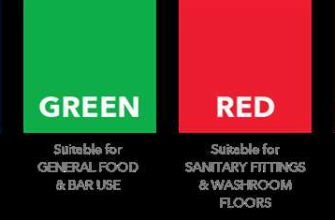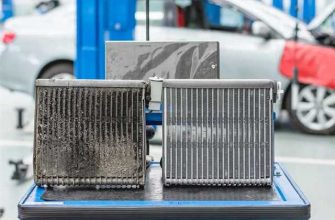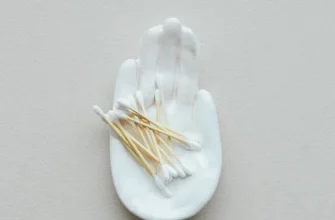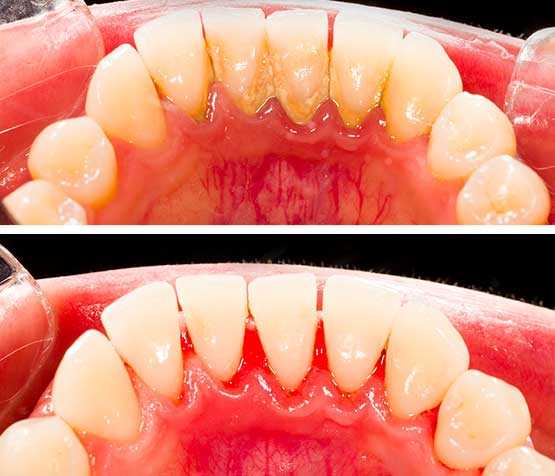
Deep cleaning teeth, also known as periodontal scaling and root planing, is a dental procedure that goes beyond a regular cleaning. It involves removing plaque and tartar from below the gum line, targeting areas that are difficult to clean with regular brushing and flossing. But what exactly is deep cleaning, and why is it necessary?
Deep cleaning is typically recommended if you have gum disease or if there are gaps or pockets between your gums and teeth. This procedure helps to remove bacteria and harmful substances that can lead to gum inflammation and infection. By thoroughly cleaning the teeth and gums, deep cleaning can promote gum health and prevent further damage.
So, what does the deep cleaning procedure entail? During the process, a dental hygienist or dentist will use special tools to remove plaque and tartar from the teeth and roots. This may involve scraping and smoothing the root surfaces to eliminate rough areas where bacteria can easily accumulate. The procedure may take longer than regular cleaning, as the hygienist needs to reach below the gum line.
While there are undeniable benefits of deep cleaning teeth, there can be some disadvantages as well. Deep cleaning can be somewhat uncomfortable or even painful, especially if you have sensitive gums. After the procedure, you may experience temporary sensitivity or soreness. Additionally, there may be gaps in your teeth for a short period of time as the gums heal and reattach to the teeth.
Despite these potential drawbacks, deep cleaning is often necessary for maintaining oral health, especially if you have gum disease. It can ultimately help to prevent tooth loss and other complications associated with gum disease. However, it is important to note that deep cleaning may not be the only solution. There are dental deep cleaning alternatives that your dentist may suggest based on your specific needs.
After undergoing deep cleaning, it is important to follow proper oral hygiene practices and take care of your gums. Brushing and flossing regularly and using an antiseptic mouthwash can help promote healing and prevent further complications. You may also need to avoid certain foods and drinks immediately after the procedure, as they can irritate your healing gums.
While the cost of deep cleaning teeth can vary depending on the severity of your condition and the region you live in, it is generally more expensive than a regular cleaning. If you have dental insurance, it may cover a portion of the cost. However, if you do not have insurance, the cost of deep cleaning can be significant. It is important to weigh the benefits and expenses to determine if deep cleaning is worth it for your oral health.
In conclusion, deep cleaning teeth has numerous benefits for maintaining healthy gums and preventing gum disease. While there may be some discomfort and temporary gaps in teeth after the procedure, the long-term advantages make it a necessary treatment for many individuals. Always consult with your dentist to determine the best course of action for your oral health needs.
- Disadvantages of Deep Cleaning Teeth
- 1. Painful or uncomfortable
- 2. Gums may temporarily recede or bleed
- 3. Gaps in teeth after deep cleaning
- 4. Cost and insurance coverage
- 5. Alternative dental treatments
- 6. Time to heal
- Pain Level of Deep Cleaning Teeth
- What is a Deep Cleaning of Teeth?
- Is It Painful?
- How Long Does It Take for Gums to Reattach After Deep Cleaning?
- Are There Any Disadvantages of Teeth Cleaning?
- What Can I Eat After Deep Cleaning of Teeth?
- Is Deep Teeth Cleaning Worth It?
- Benefits of Deep Teeth Cleaning
- Disadvantages of Deep Teeth Cleaning
- How long for gums to reattach after deep cleaning?
- Alternatives to Dental Deep Cleaning
- What can I eat after deep cleaning of teeth?
- Is deep cleaning teeth worth it?
- How much does deep cleaning teeth cost?
- Before and After Hygienist
- Is a dental deep cleaning ever really necessary?
- How long does it take?
- What are the disadvantages of deep cleaning teeth?
- What can I eat after deep cleaning of teeth?
- What are the disadvantages of teeth cleaning?
Disadvantages of Deep Cleaning Teeth
Deep cleaning teeth, also known as scaling and root planing, is a dental procedure that involves the removal of plaque and tartar from below the gumline. While deep cleaning can have numerous benefits for oral health, there are also some potential disadvantages to consider.
1. Painful or uncomfortable
Deep cleaning can cause some discomfort or pain during and after the procedure. The scaling process involves scraping the tooth roots to remove plaque and tartar, which can irritate the gums. Some patients may experience sensitivity or soreness, especially if they have gum disease or sensitive gums.
2. Gums may temporarily recede or bleed
During deep cleaning, the hygienist may push the gums back to access the root surfaces of the teeth. This can cause the gums to temporarily recede or bleed. However, this should only be temporary, and with proper oral hygiene and care, the gums should heal and reattach to the teeth.
3. Gaps in teeth after deep cleaning
After deep cleaning, it is possible to experience gaps between the teeth. This occurs when there is significant bone loss and the gums recede, exposing more of the tooth surfaces. It is essential to follow up with regular dental check-ups and cleanings to prevent further tooth and bone loss.
4. Cost and insurance coverage
The cost of deep cleaning teeth can vary depending on the extent of the treatment and the dentist’s location. Without insurance coverage, the cost can add up quickly. It is essential to check with your insurance provider to see if deep cleaning is covered and what percentage they will pay.
5. Alternative dental treatments
In some cases, deep cleaning may not be the most appropriate treatment option. Depending on the severity of gum disease or other oral health issues, alternative treatments, such as gum surgery or periodontal maintenance, may be necessary. It is crucial to consult with a dentist or periodontist to determine the best course of treatment for your specific oral health needs.
6. Time to heal
It can take time for the gums to reattach to the teeth after deep cleaning. This process can vary from person to person, but it is generally expected to take several weeks to months. During this time, it is crucial to follow proper oral hygiene practices and avoid any habits or behaviors that could delay the healing process.
Overall, deep cleaning teeth can be a valuable treatment for improving oral health and preventing gum disease. However, it is essential to consider the potential disadvantages and discuss them with a dental professional to determine if deep cleaning is the right option for your specific dental needs.
Pain Level of Deep Cleaning Teeth
When it comes to deep cleaning teeth, many people wonder about the level of pain involved. Here, we will explore the potential discomfort associated with this dental procedure.
What is a Deep Cleaning of Teeth?
A deep cleaning of teeth, also known as scaling and root planing, is a dental procedure performed by a dental hygienist. It is a more extensive cleaning compared to a regular dental cleaning. It involves removing plaque and tartar buildup from the teeth and gums, including the pockets between the teeth and gums.
Is It Painful?
The level of pain experienced during a deep cleaning can vary depending on individual sensitivity and the severity of the gum disease. Some patients may feel slight discomfort or sensitivity during the procedure, while others may experience more pain.
The dental hygienist will typically numb the area with a local anesthetic to minimize discomfort. However, it is normal to still feel some pressure or vibration during the cleaning process.
How Long Does It Take for Gums to Reattach After Deep Cleaning?
After a deep cleaning, it takes time for the gum tissues to heal and reattach to the teeth. This process can take several weeks. During this time, it is essential to maintain good oral hygiene practices, including regular brushing, flossing, and using an antibacterial mouthwash as recommended by your dentist.
You may also notice gaps or spaces between your teeth after a deep cleaning. These spaces are temporary and should resolve as the gum tissues heal and reattach to the teeth.
Are There Any Disadvantages of Teeth Cleaning?
While deep cleaning is an effective treatment for gum disease, there can be some disadvantages. These may include:
- Increased sensitivity: Some patients may experience increased tooth sensitivity to hot or cold temperatures after a deep cleaning.
- Possible discomfort: As mentioned earlier, some patients may experience discomfort during or after the procedure.
- Cost: Depending on your dental insurance coverage, the cost of deep cleaning teeth can vary. It is recommended to check with your dental provider to understand the cost implications.
What Can I Eat After Deep Cleaning of Teeth?
After a deep cleaning, it is crucial to eat soft and easy-to-chew foods for a few days to allow the gum tissues to heal. Foods such as yogurt, mashed potatoes, smoothies, and scrambled eggs are good options. Avoid hard and crunchy foods that can irritate the healing gums.
In conclusion, while a deep cleaning of teeth may cause some discomfort or pain, it is a necessary procedure for treating gum disease. The level of pain experienced may vary from person to person, but the dental hygienist can administer local anesthetic to minimize discomfort. It is crucial to follow proper oral hygiene practices and eat soft foods during the healing process.
Is Deep Teeth Cleaning Worth It?
Deep teeth cleaning, also known as scaling and root planing, is a dental procedure that goes beyond regular cleaning and is recommended for people with gum disease or excessive plaque and tartar buildup. While deep teeth cleaning has several benefits, it also comes with its disadvantages and considerations. Here, we will discuss whether deep teeth cleaning is worth it or not.
Benefits of Deep Teeth Cleaning
- Reduces the risk of gum disease and other oral health problems
- Removes plaque, tartar, and bacteria from below the gumline
- Prevents tooth loss and preserves the health of the supporting structures
- Improves bad breath caused by gum disease
- Enhances the overall appearance of the teeth and gums
Disadvantages of Deep Teeth Cleaning
Despite the benefits, there are a few potential disadvantages of deep teeth cleaning:
- Painful procedure: The process of scaling and root planing can cause discomfort, especially if the gums are inflamed or sensitive.
- Gaps in teeth: In some cases, teeth may appear slightly separated or with small gaps after deep cleaning. These gaps usually resolve on their own as the gums heal.
How long for gums to reattach after deep cleaning?
The healing time for gums after deep cleaning varies from person to person. It usually takes a few days to a few weeks for the gums to reattach and heal properly. During this time, it is important to follow proper oral hygiene practices and maintain regular dental check-ups.
Alternatives to Dental Deep Cleaning
In some cases, depending on the severity of the gum disease, alternatives to deep teeth cleaning may be considered. These alternatives may include antibiotic treatment, laser therapy, or surgical intervention. It is best to consult with a dental professional to determine the most suitable treatment option for your specific condition.
What can I eat after deep cleaning of teeth?
After deep cleaning, it is important to avoid hard, sticky, or crunchy foods that can irritate the gums. It is recommended to stick to soft and easy-to-chew foods, such as mashed potatoes, yogurt, soup, and scrambled eggs. It is also important to maintain good oral hygiene by brushing gently with a soft-bristled toothbrush and using a mouthwash recommended by your dentist.
Is deep cleaning teeth worth it?
Deep teeth cleaning is worth it for individuals with gum disease or excessive plaque buildup. It helps prevent further oral health problems, preserves the health of the teeth and supporting structures, and improves overall oral hygiene. However, it is essential to consult with a dental professional to determine the best course of action for your specific condition and to address any concerns or questions you may have.
How much does deep cleaning teeth cost?
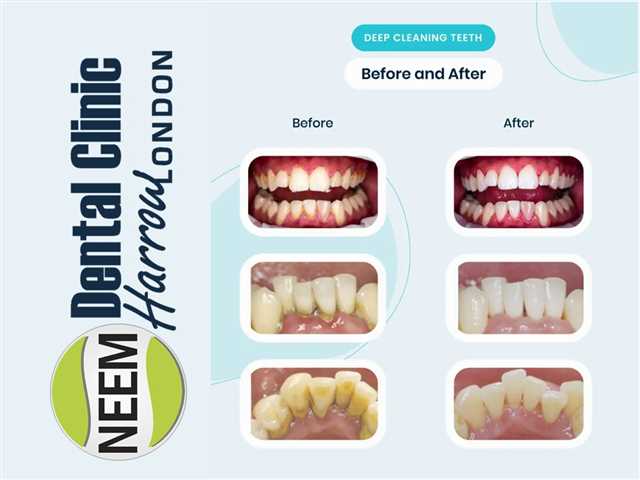
The cost of deep teeth cleaning can vary depending on factors such as the severity of the gum disease, the location, and the dental professional’s fees. On average, deep teeth cleaning can cost between $140 and $300 per quadrant. However, it is crucial to check with your dental insurance provider to determine coverage and out-of-pocket expenses.
Before and After Hygienist
- Is a dental deep cleaning ever really necessary? Cleaning?
- How long does it take?
- What are the disadvantages of deep cleaning teeth?
- How long does it take for gums to reattach after deep cleaning?
- What can I eat after deep cleaning of teeth?
- What are the disadvantages of teeth cleaning?
Is a dental deep cleaning ever really necessary?
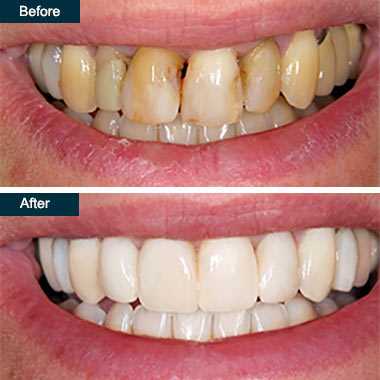
A dental deep cleaning, also known as scaling and root planing, is typically recommended when there is evidence of gum disease or excessive plaque and tartar build-up. It is performed by a hygienist to remove the deposits of bacteria that can cause gum disease and lead to tooth loss if left untreated. While regular brushing and flossing can help prevent gum disease, a deep cleaning is often necessary to tackle more advanced cases.
How long does it take?
The length of a dental deep cleaning procedure can vary depending on the severity of the case and the number of areas that need to be treated. On average, a deep cleaning for the entire mouth can take anywhere from one to two hours. However, it’s important to note that this is just an estimate and the actual time can vary from patient to patient.
What are the disadvantages of deep cleaning teeth?
- Deep cleaning teeth can be a bit uncomfortable or even slightly painful, especially for patients with sensitive gums.
- It can cause temporary gum inflammation and bleeding.
- After the procedure, there may be gaps between the teeth as the gums shrink and reattach to the teeth.
- The cost of deep cleaning teeth can be significant, especially if you do not have dental insurance.
- It may take some time for the gums to fully reattach to the teeth and for any gaps to close.
What can I eat after deep cleaning of teeth?
After a deep cleaning, it is important to stick to soft foods for a few days to allow the gums to heal. Examples of soft foods include yogurt, mashed potatoes, smoothies, scrambled eggs, and pasta. Avoid hard and crunchy foods that can irritate the gums or get stuck in the gaps between the teeth.
What are the disadvantages of teeth cleaning?
- The cost of teeth cleaning can add up, especially if you do not have dental insurance. The cost can vary depending on the location and the dental clinic.
- The process of teeth cleaning can be uncomfortable for some individuals, especially if they have sensitive teeth or gums.
- Not all dental cleaning methods can remove deep stains or discoloration, such as those caused by smoking or certain medications. In such cases, additional procedures like teeth whitening may be necessary.

